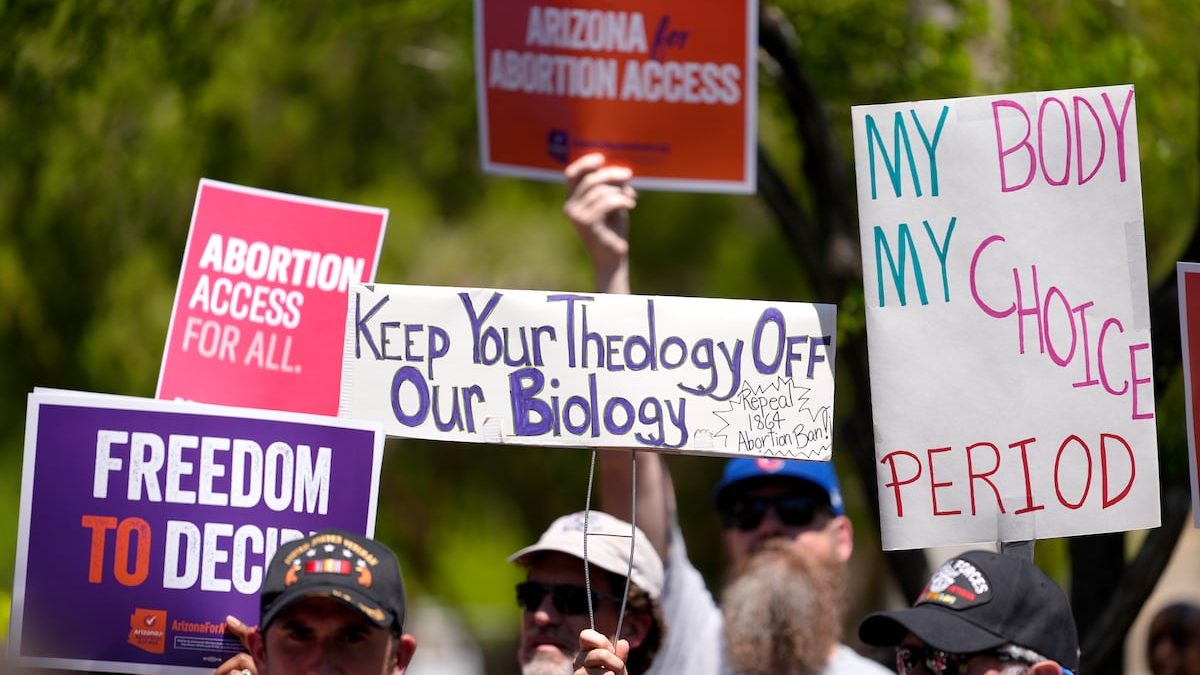Conservative lawmakers hope that scrapping abortion access policies at the Departments of Defense and Veterans Affairs will be among the first major changes when President-elect Donald Trump takes office in January.
But overturning those policies may not be as easy as a quick executive order. Advocates say that public protests and legal fights — especially in the case of VA rules — could create roadblocks for the incoming president in the months ahead.
“At least with VA, there is hope that the rule is more permanent and more protected, even under the Trump administration,” Jackii Wang, senior legislative analyst at the National Women’s Law Center. “But we know that Trump has laid down his agenda, and all of these things are at risk.”
RELATED
On the campaign trail, Trump repeatedly promised to rid the military of “woke” policies and hailed his previous administration’s work to permit states to set their own rules banning or allowing abortion access.
That included appointing several Supreme Court justices who overturned the 1973 Roe vs. Wade ruling, thereby allowing states to decide whether to legalize or criminalize abortion.
In response, Defense Department officials in early 2023 put in place a policy allowing servicemembers leave time and travel reimbursements if they needed to travel across state lines for abortion services, either for themselves or a family member.
Similarly, VA leaders announced plans in fall 2022 to offer abortion access to veterans and eligible dependents in cases of rape, incest and pregnancies that endanger the life or health of an individual. That included conducting abortions at VA facilities in states where the procedures had been outlawed.
Numerous Republican lawmakers decried the departments’ policies, referring to them as illegal work-arounds for state abortion laws.
Sen. Tommy Tuberville, R-Ala. — who blocked hundreds of senior military nominations for 11 months over the military policy — on Wednesday said he hopes that the incoming president quickly reverses the rules after taking office and “we’d have an opportunity to quit breaking the law.”
But current administration officials have defended the policies, saying the provide critical reproductive health services for troops and veterans. The VA policy has survived several legal challenges, and was codified through the federal rules process this past March.
Wang said that makes undoing the VA policy difficult, at least in theory. Trump administration officials would need to go through another formal rulemaking process to remove the department’s authority to conduct abortions, a process that includes months of public comment.
“He could rely on allies in Congress to pass a law to undo that, but certainly advocates will fight back against it,” she said. “There will be significant outcry if he tries to remove these policies.”
RELATED

The Defense Department reimbursements and leave time are more susceptible to quick repeal, Wang concedes. Because that exists as an administrative act rather than formal federal rule or law, Trump’s new Defense Department leadership could simply put in place new plans and end access across state lines.
Neither the VA nor Defense Department policies have been heavily used. Military officials said their abortion allowances were accessed just 12 times in the first year of the policy. VA officials said they performed 88 abortions in the first year of its policy.
Still, Wang said those figures represent an important resource for troops and veterans who may not have other access options.
“You sign up to be a service member, you become a veteran. You were promised access to health care,” she said. “If that doesn’t happen, that’s unjustifiable.”
Trump will be inaugurated for his second term as president on Jan. 20. His pick to lead the Defense Department, Fox News commentator Pete Hegseth, will need to pass Senate confirmation before taking over the top Pentagon leadership role. Trump has not yet announced a pick for Veterans Affairs Secretary.
Leo covers Congress, Veterans Affairs and the White House for Military Times. He has covered Washington, D.C. since 2004, focusing on military personnel and veterans policies. His work has earned numerous honors, including a 2009 Polk award, a 2010 National Headliner Award, the IAVA Leadership in Journalism award and the VFW News Media award.
Read the full article here


